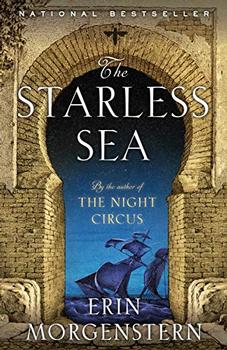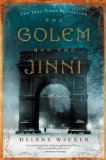Summary | Excerpt | Reading Guide | Reviews | Beyond the book | Read-Alikes | Genres & Themes | Author Bio

From the book jacket: Sophisticated, witty, and ingeniously convincing, Susanna
Clarke's magisterial novel weaves magic into a flawlessly detailed vision of
historical England. She has created a world so thoroughly enchanting that eight
hundred pages leave readers longing for more.
Comment: Set in early 19th century England, this book is historically accurate
in almost every way, except for one fundamental difference; in Clarke's world,
English magicians were once the wonder of the known world, with fairy servants
at their beck and call, but by the early 1800s practical magic has died out,
leaving only committees of theoretical magicians. At least, practical
magic is believed to have died out until Mr Norrell, a deeply dull, reclusive
bookworm who through years of diligent study has taught himself the mysteries of
the ancient arts, takes his nose out of his books long enough to travel to
London to offer his services to the government in their fight against
Napoleon. There he meets the charismatic Jonathan Strange who becomes his protégé.
However, where Mr Norrell sees magic as something to be used cautiously with
careful control, Strange is attracted to the wildest, most perilous forms of
magic, and becomes fascinated with the shadowy figure of the Raven King, who
once ruled both the kingdoms of England and of Faerie.
What kept me reading was partly an interest in the story itself, but mainly a
fascination as to whether Clarke would be able to maintain the credibility of
her world through to the end - she can. However, I have to say that
I never quite found myself lost in the book, I always felt a little as if I was
looking in from the outside.
A wide range of reviewers have pitched in with opinions on this one. The
only negative review, as such, is from The New Yorker who says, 'Clarke’s
ability to construct a fully imagined world—much of it explained in long,
witty footnotes—is impressive, and there are some suspenseful moments. But her
attempt to graft a fantasy narrative onto such historical realities as the
Battle of Waterloo is more often awkward than clever, and the period dialogue is
simply twee. Worse, the tension between the forces of good and evil—crucial in
any magical tale—is surprisingly slack; the arch-villain is a cartoonish fop
whose petulant misdeeds lack menace.' Most reviewers are very positive,
for example, Michael Dirda, writing in The Washington Post says, 'Jonathan
Strange & Mr. Norrell may or may not be the finest English fantasy of
the past 70 years. But it is still magnificent and original, and that should be
enough for any of us. Right now all we really need to do is open to chapter one
and start reading, with mounting excitement: "Some years ago there was in
the city of York a society of magicians. . . ."
![]() This review
first ran in the September 14, 2005
issue of BookBrowse Recommends.
This review
first ran in the September 14, 2005
issue of BookBrowse Recommends.

If you liked Jonathan Strange & Mr Norrell, try these:

by Erin Morgenstern
Published 2020
From the New York Times bestselling author of The Night Circus, a timeless love story set in a secret underground world - a place of pirates, painters, lovers, liars, and ships that sail upon a starless sea.

by Helene Wecker
Published 2014
A chance meeting between mythical beings takes readers on a dazzling journey through cultures in turn-of-the-century New York.
Your guide toexceptional books
BookBrowse seeks out and recommends the best in contemporary fiction and nonfiction—books that not only engage and entertain but also deepen our understanding of ourselves and the world around us.